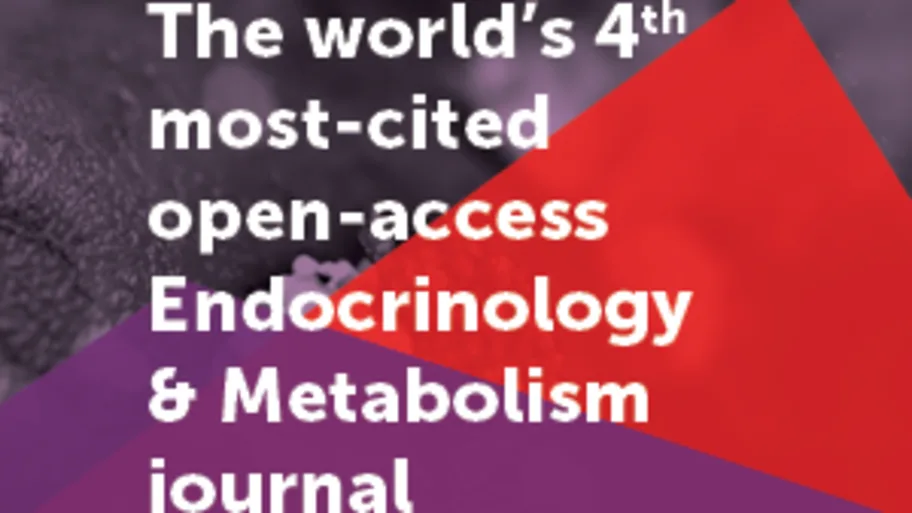
- Science news
- Frontiers news
- Deconstructing diabetes
Deconstructing diabetes

Diabetes is a complex disease, which currently affects almost 10 % of the adult population worldwide and whose incidence is expected to increase further in the coming years.
Many questions and challenges are still open to find a cure to diabetes, such as:
Why are only some individuals susceptible to environmental factors such as obesity?
Is beta cell dysfunction — as well as destruction — an important aspect of Type 1 diabetes?
Can we find new drug targets?
How do existing drugs work?
How do factors such as innate immunity, exercise and dietary restriction impact insulin sensitivity at the molecular level?
The new specialty [Diabetes: Molecular Mechanisms](https://www.frontiersin.org/journals/endocrinology/sections/diabetes-molecular-mechanisms?utm_source=fweb&utm_medium=nblog&utm_campaign=cco -sl-fendo-diabetes-molecular-mechanisms) led by Prof. Guy Rutter and Prof. Jared Rutter will address these and many other fundamental questions about basic and pre-clinical diabetes research.
Discover [Diabetes: Molecular Mechanisms](https://www.frontiersin.org/journals/endocrinology/sections/diabetes-molecular-mechanisms?utm_source=fweb&utm_medium=nblog&utm_campaign=cco -sl-fendo-diabetes-molecular-mechanisms)
A new opportunity for fundamental Diabetes research
The Section seeks to present all preclinical studies on molecular aspects of type 1 and type 2 diabetes. Studies on fundamental aspects of each disease process, including pancreatic islet and enteroendocrine cells, “classical” and non-classical insulin target tissues are welcomed. Technology advancements in this area are also encouraged.
Leading experts

Prof. Guy Rutter
Prof. Guy Rutter
Prof. [Guy Rutter](https://loop.frontiersin.org/people/309122/overview?utm_source=fweb&utm_medium=nblog&utm_campaign=cco -sl-fendo-diabetes-molecular-mechanisms), Head of Section of Cell Biology and Functional Genomics at the Imperial College in London, has recently established the Imperial Network of Excellence in Diabetes to help deploy knowledge on diabetes studies and state-of-the-art technologies. His research experience began with a PhD in the Department of Biochemistry at Bristol University. He then won an MRC Travelling Fellowship to study the regulation of insulin secretion under Claes Wollheim in Geneva, in collaboration with the groups of Tullio Pozzan and Rosario Rizzuto in Padua, before returning to Bristol in 1993, and moving to Imperial in 2006. He is currently a Wellcome Trust Investigator and MRC Programme Grant holder.
“My chief goals are to develop new means to enhance insulin secretion in Type 2 diabetes by studying the fundamental signaling pathways through which glucose, incretins and other hormones act on the pancreatic β cell and the central nervous system.”

Prof. Jared Rutter
Prof. Jared Rutter
Prof. [Jared Rutter](https://loop.frontiersin.org/people/750957/overview?utm_source=fweb&utm_medium=nblog&utm_campaign=cco -sl-fendo-diabetes-molecular-mechanisms) is an Investigator of the Howard Hughes Medical Institute. He is a Professor of Biochemistry and holds the Dee Glen and Ida Smith Endowed Chair for Cancer Research at the University of Utah. His recent discoveries led to the identification of critical metabolic steps (such as mitochondrial pyruvate carrier) relevant to a variety of human diseases. Dr. Rutter is also actively involved in translating these academic discoveries into therapies for patients. This has included founding two companies, one of which has a program in Phase 1 clinical trials, with the other in the late pre-clinical phase. He also serves as a Consultant or member of the Board of Directors or SAB of several additional companies and venture firms. Dr. Rutter serves as co-Director of the Diabetes and Metabolism Center at the University of Utah and co-Leader of the Nuclear Control of Cell Growth and Differentiation at Huntsman Cancer Institute.
“Our new section will provide an exciting new forum to present new data, ideas and perspectives to a receptive audience.”
Frontiers journals also consistently rank among the world’s most-cited in their fields and in the top Impact Factor and CiteScore percentiles. [Discover more](https://www.frontiersin.org/about/impact?utm_source=fweb&utm_medium=nblog&utm_campaign=cco -sl-fendo-diabetes-molecular-mechanisms)






